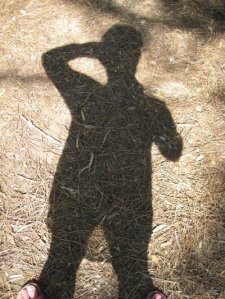In a new book entitled “Curious? Discover the missing ingredient to a fulfilling life”, positive psychologist Dr Todd Kashdan has defined a formula for happiness – and identified that heightening our levels of curiosity and open-mindedness about our experience is helpful to our well-being.
Who knew?
Well, if you’ve kept a journal for any length of time you will know that nurturing our curiosity is not only vital to garnering enough material to write about, but it also enhances our lives in other ways too. Curiosity makes us slow down; it makes us question things more keenly; it makes us look closer; it makes us appreciate more, and gives us greater opportunity for understanding and empathy. Think about Alice in Wonderland. “Curiouser and curiouser” were her watchwords. And she breezed through some pretty bizarre experiences without a single shred of angst or stress.
And what of the happiness formula itself?
Check this out:
(Mx16 + Cx1 +Lx2) + (Tx5 + Nx2 + Bx33)
The key is:
M – live in the moment; C – be curious; L – do something you love; T – think of others; N – nurture relationships; B – take care of your body.
Reflective writing is a positive step in the direction of all these factors, helping us be more mindful. Here’s a reminder of a few exercises to tune in to each of them:
- Live in the moment
Spend five minutes becoming aware of your environment, the sounds, smells, air temperature, the things you can see around you. Make a note of them. Turn your attention to your body. Write about how it feels, where you sense any tension. Every time your mind is tempted to stray off into other thoughts and imaginings, bring your focus back to the page, to the feeling of the pen between your fingers. Keep writing. What’s important about this moment?
- Be curious
Take a fresh view of an object that is familiar to you. It could be a trinket, an appliance or a piece of furniture. Get curious about it. Write it down.
- Do something you love
What’s the thing that brings you the most joy and satisfaction? How often do you experience it? What promise will you make about the thing you love to do? Write it down.
- Think of others
Bring to mind the first person you saw when you left the house today. Write a brief pen portrait of them. Allow ourself to step into their shoes and see the day through their eyes, maybe write a short paragraph in their voice. How have your perceptions shifted?
- Nurture relationships
Write a letter to someone special to you whom you haven’t seen for a while. What do you want them to know? As you write, what feels like the best, most nurturing way to reach out to them? Make a plan of action to do that thing and write it down.
- Take care of your body
Initiate a ‘conversation’ with a part of your body that is causing you any concern or discomfort. What message does it have for you? What steps is it asking you to take to look after it better? Make a commitment to do the thing your body is ‘asking’ for and write it down.
Our journals can become our handbooks for happiness. Between our minds and the page, the physical act of writing helps us integrate the feel good formula into our own lives. Get curious!



